The Burning Bush by Elias Simojoki
$7.45 – $20.95
Burning Bush PreviewPurchasing internationally? Purchase from Amazon: Click here to order
—
Lauri Elias Simojoki (1899-1940) was a Finnish soldier, parliamentarian, Lutheran priest, far right organizer, and leader of an attempted coup in Estonia. As a young man, he served in the Finnish War of Independence in 1918 and fought as a guerrilla fighter in Karelia in 1919. Later, he studied theology at the University of Helsinki and was an essential part of the formation of the youth nationalist organization the Academic Karelia Society.
Ordained as a Lutheran minister in 1925, in 1933 he joined the Finnish parliament and took command of the Sinimustat, the youth wing of the Patriotic People’s Movement, inspired by and modeled on similar movements in Germany and Italy. Although the Sinimustat was disbanded a mere three years later due to its involvement in an attempted coup in Estonia, Simojoki remained a Member of Parliament and went on to found the Finnish Mustapaidat (Blackshirts) in 1937. He enlisted as a military chaplain at the outbreak of the Winter War and lost his life to Soviet gunfire while performing a mercy killing to a wounded horse on the battlefield.
The Burning Bush (Palava Pensas) is a selection of Simojoki’s patriotic and political speeches compiled by his comrade Vilho Helanen in 1942. It is in these speeches that Simojoki’s commitment to, and love for, Greater Finland stands out above all else. It is for Greater Finland that Simojoki worked all his life, the grand dream for which in the end he sacrificed his life. These speeches, translated by Jarno Alander, are now being made available in English for the first time by Antelope Hill Publishing.
Paperback ISBN: 978-1-956887-29-7
Ebook ISBN: 978-1-953730-59-6
| Weight | N/A |
|---|---|
| Dimensions | N/A |
| Format | AudioBook (Chapters), Audiobook (Single), eBook, Hardcover, Paperback |

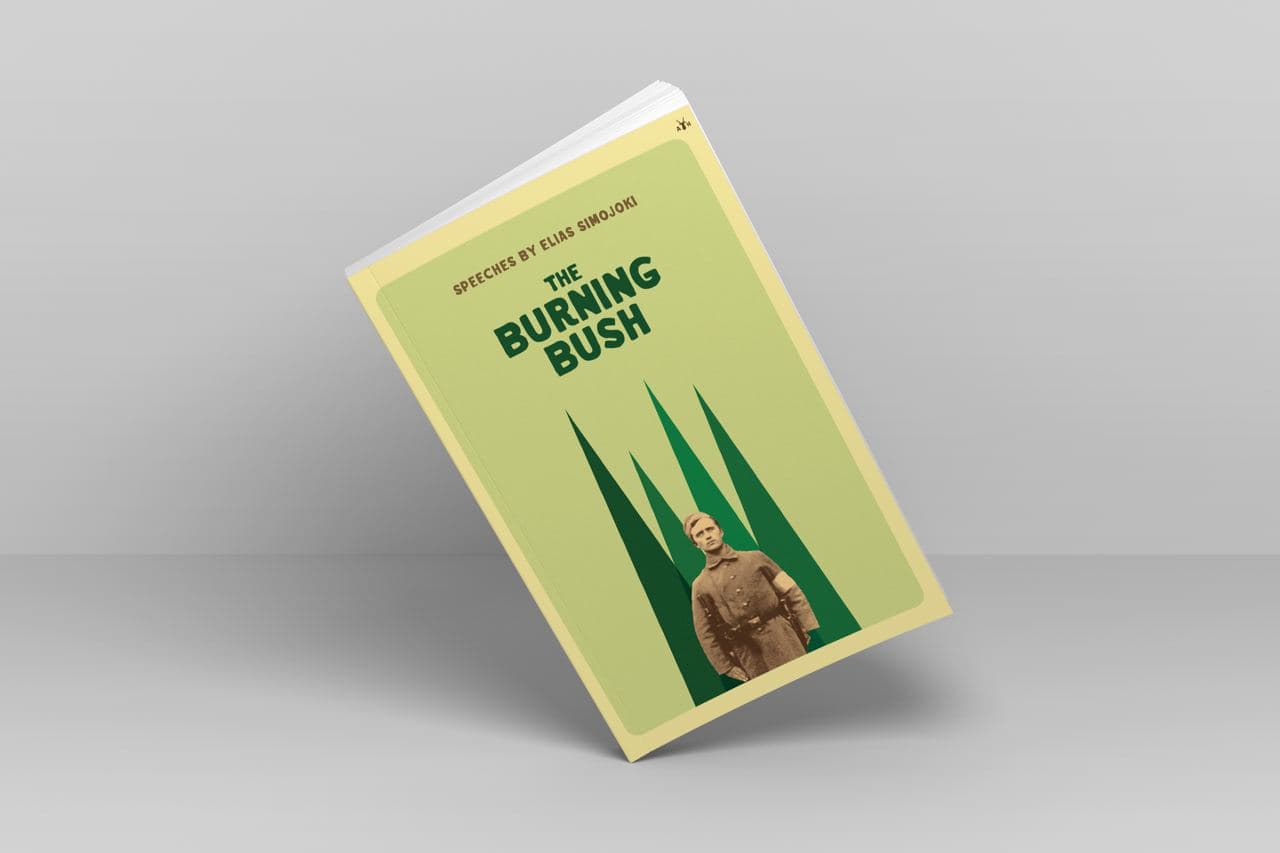

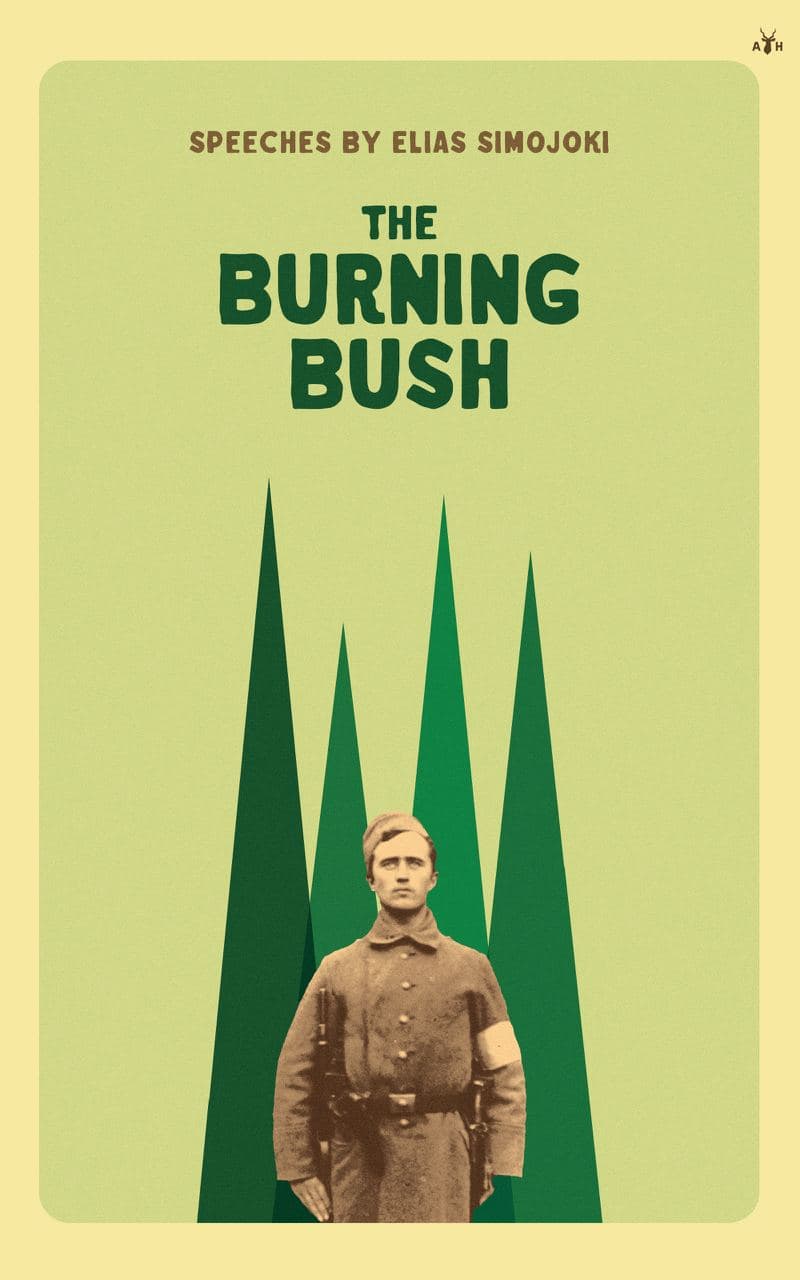
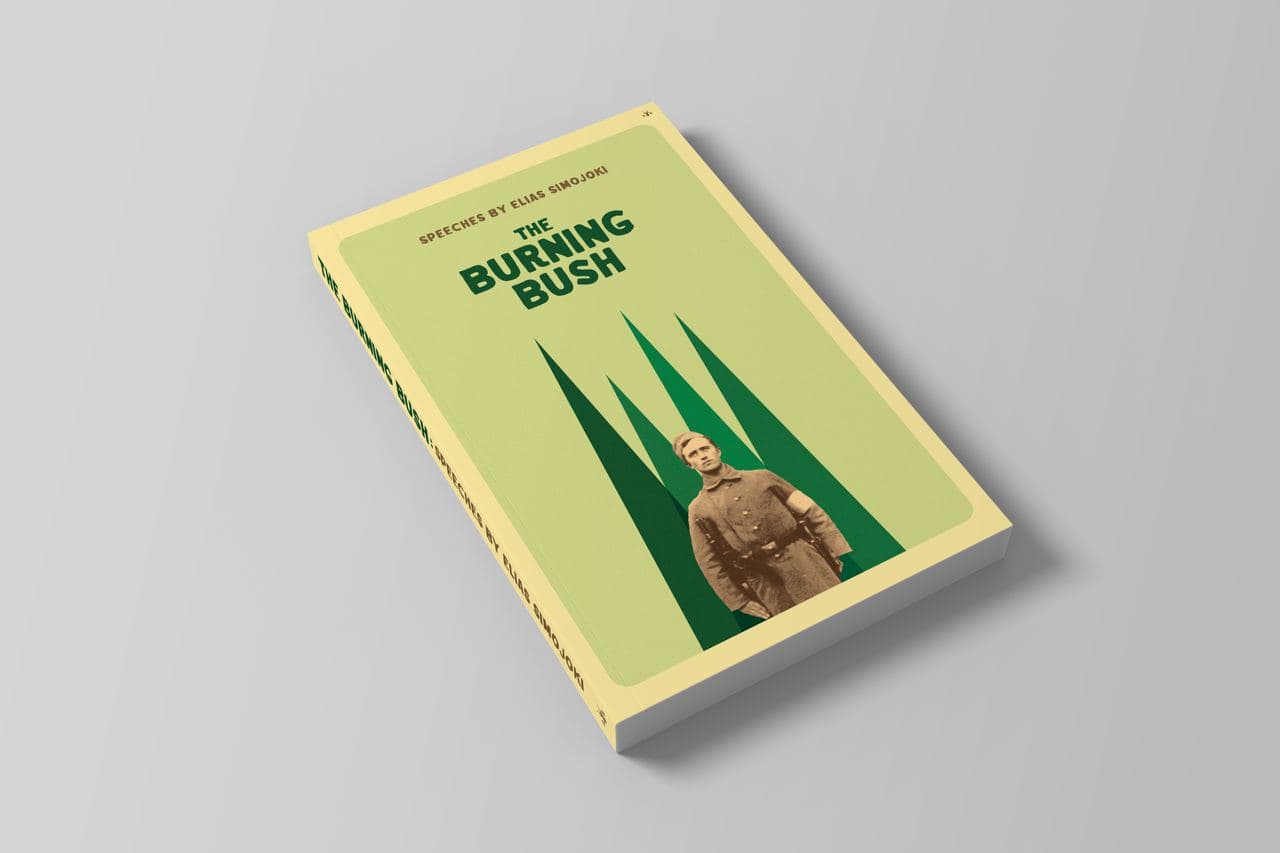

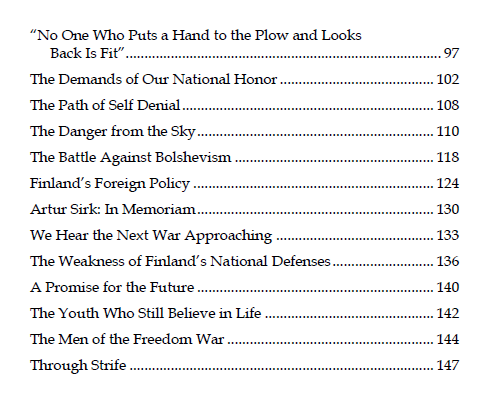
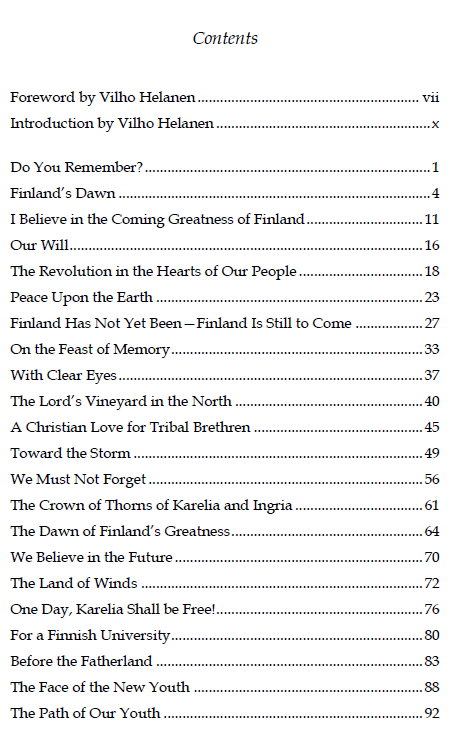



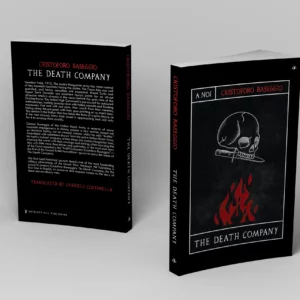
Randal –
I was pleasantly surprised how much I liked this book. Initially, I thought that it would be useful mainly just for Finnish nationalists, since Elias Simojoki in this collection of speeches concerns himself primarily with Greater Finland. However, it is indeed a book that attracts anybody with a strong nationalist belief system.
In short, Simojoki is a passionate speaker whose love of God and Fatherland powerfully hits you with each speech. There was no point in my reading of this book where it seemed like the author’s message was not applicable to me, too. Any nationalist dissident will feel enormously encouraged after reading this book: indeed, Simojoki’s struggle is our struggle as well, just magnified on a larger scale and in a different century.
Among the many themes of this book are two that stand out to me: 1) Love of his people and 2) The readiness to sacrifice. Simojoki didn’t just talk the talk: he fought in many wars for Finland’s independence and paid the ultimate sacrifice in the Winter War of 1940.
As a Lutheran Christian, I found Simojoki’s example as a devout Lutheran clergyman and nationalist to be most inspiring: for him, there is no separation between faith and heritage, rather, the two complement each other and bring ultimate meaning to life. The modern Lutheran church would do well to pay attention to his example, since many of its leaders even deny that race exists (there are many exceptions, however, and dissident Lutheran voices seem to be growing).
Throughout my life I have heard the phrase “Fatherland” used frequently. It was not until I read this book that I realized that it means ‘the place where my ancestors dwell and are buried’. That hit me hard and reminded me of my own commitment to the ideology of blood and soil.
Simojoki was a great man who inspires our people today. I highly recommend that dissident Rightists buy this book.
For Lutherans, Simojoki serves as an example that there are strong men in our past who celebrate faith and heritage. His example shows us that we do not have to be cucks or race deniers, ala Jordan Cooper.
Dalton –
I purchased the book initially because I’m deeply intrigued by ethno-nationalism from a Christian perspective. While the essay from Faith and Heritage may shed light on it, what does it mean from a personal perspective? How does one reconcile racial purity with love of neighbor above oneself? How can one love one’s race above, or even equal to one’s brother in Christ?
This book is exactly the one you seek if these questions boggle the mind. Simojoki is a brilliant speaker and an even more brilliant philosopher. One may say that the language he uses is simple and his word choice is often uninspired, but that just makes it easier to understand for how clever he is. He fought for years defending his not only his faith as a Lutheran priest, but the whole Finnish race which had recently been subjugated and continued to be plundered by the Soviet horde. The way he understands greatness, sacrifice, loyalty, and above all, love, true Christ-like love is brilliant. It’s often been said that artists aren’t understood until long after they’re gone and given this is its first introduction to an English audience, that may be the case. He fought for decades for his people, reconciling love of neighbor alongside hatred of evil, tying together love of Christ with loving one’s own race. There’s never a moment throughout the book where one is distracted from the clear answer to the above questions. The love he feels for both is written in every line of every page. The reader is never distracted from race or God, and the understanding the importance of race and loving one’s own brother to the point of sacrificing one’s own life is the greatest love of all, the love that Christ encourages us all to embrace.
In Christ,
Dalton